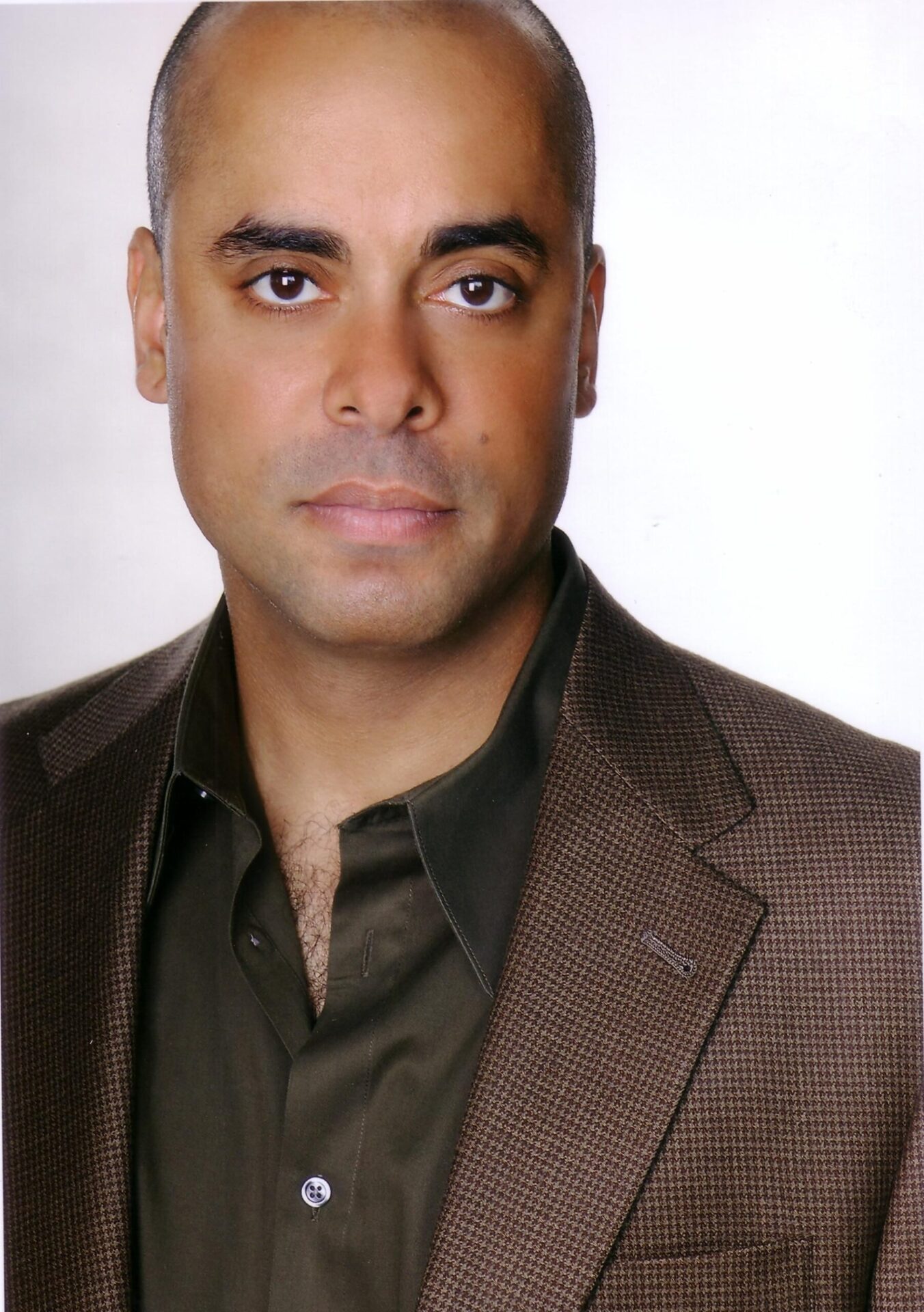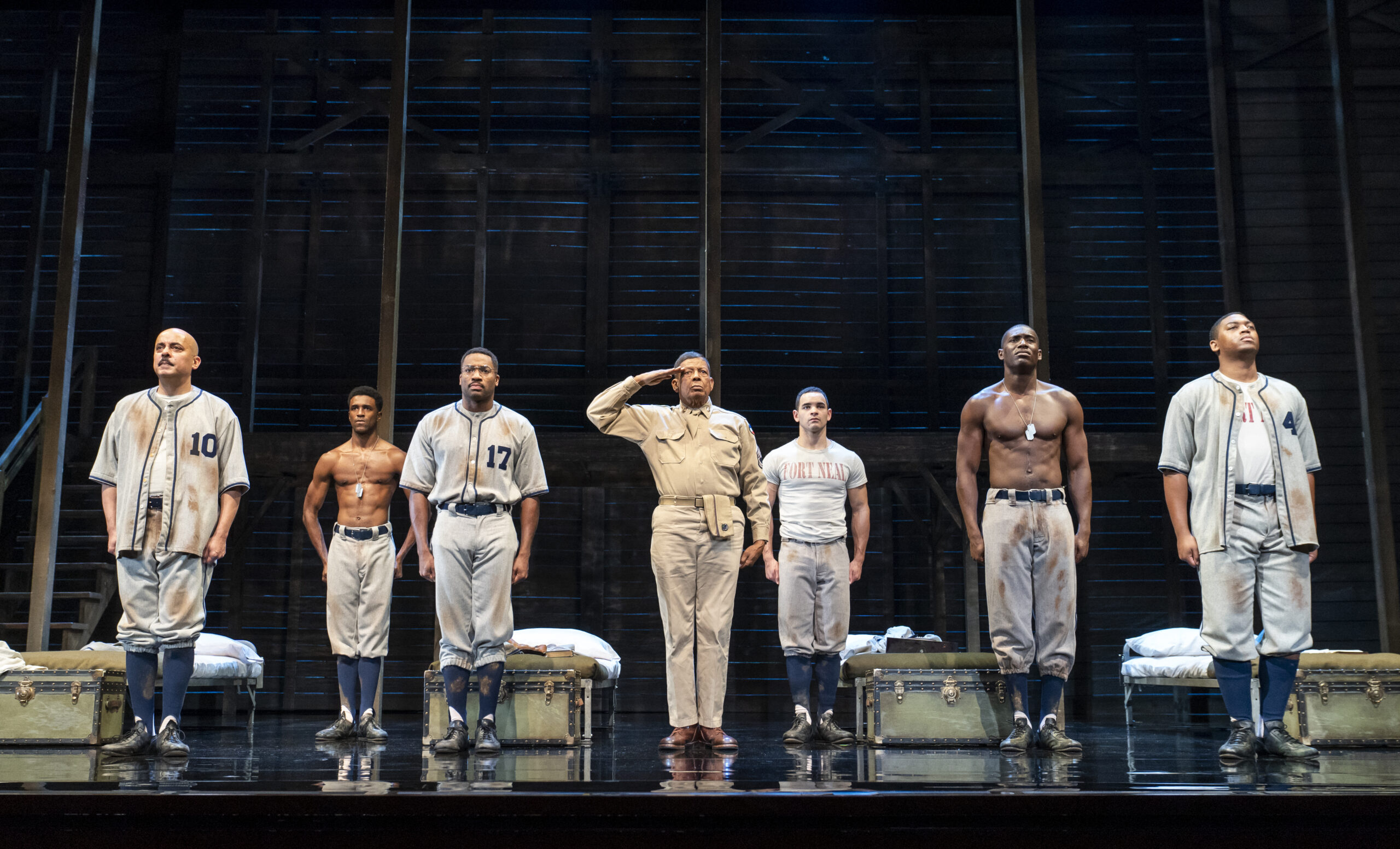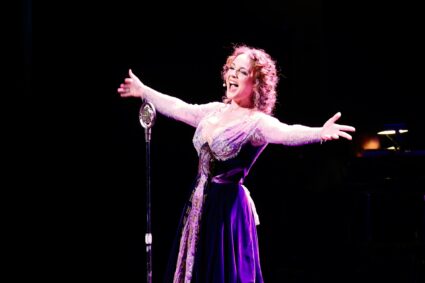
On this Winter edition of THE INTERVUE, Last week people have marched to the Kennedy Center to see the powerful drama, A Soldier’s Play, which is currently performing at the Eisenhower theatre through January 8, 2023. In 1944, on Louisiana army base, two shots ring out, a sergeant is murdered, and a series of interrogations triggers a gripping barrage of questions about sacrifice, service and identity in America.
Our guest today on the interview has had theater credits in The Lehman Trilogy, St. Joan and Julius Caesar. And you may have seen him on television in The Marvelous Mrs. Maisel, girls5va, & Blue Bloods. Currently he takes on the role of Private James Wilkie.
Ladies and gentlemen, welcome to the INTERVUE. Howard Overshown
Howard, welcome to the INTERVUE!
Thank you very much.
My first question is as I mentioned, at the start the broadcast that this is a very powerful play, and it’s been around pretty much since November 1981. It made it revival on Broadway in 2020. What piqued your interest in taking on this amazing drama?
Well, first of all, I saw the film, like I think it must have been like 1987. And I just read the book, Ragtime and saw the movie Ragtime starring Howard Rollins, Jr. and so I was a big fan of his and so I saw that he was in this movie soldiers, but he played Davenport and the movie. So I rented it watched it wasn’t aware that it had been a play wasn’t in the theater at that time. But it was also the first time I saw Denzel Washington, in a film and, you know, if you if you’ve seen them, you know, it just it blew me away. And that’s what I had taken like drama class and dabbled here and there. But when I saw that movie, it changed me and it made me that’s what made me really want to be an actor as well. So that started me with it.
And then, a few years ago, right before the pandemic, I did a show called The Underlying Chris at Second Stage Theater. It’s a Will Eno play that I’m Kenny Leon directed. And that’s when he was getting ready to do A Soldiers Play. And through our, through our relationship doing that that was my first time working with him. We had a pretty good working relationship. He asked me if I would understudy David Alan Grier on Broadway. So I said yes. And so that started my relationship with this production. So on Broadway, I was the I was the understudy to Sergeant Waters.
And, and also got to see some of it, you know, be created, it was really special to be in the world, the last couple of weeks of rehearsal and see everything come together. That’s personally how it affected me. But I also have family members that were members of the military service, some of which I’m distant cousins and stuff that haven’t really been close with, and actually being part of this has brought us together. In fact, I had a cousin Mike come last night to see the show. So it’s really given me an appreciation or reignited my appreciation for the armed services.
I’m so glad to hear it. Wilkie is a very fascinating character to witness on stage. While he’s hopeful to earn his stripes back, he’s very loyal to his superior Sgt. Waters. How did you approach playing him since even though you understudy for Sgt. Waters, working with Kenny Leon for the revival How did you approach playing Wilkie?
Well, first of all, Mr. Charles Fuller wrote an incredible, beautiful work of art. And so there are so many nuggets of information in the script. So that’s how I started first of all just approaching just by reading it, you know, honoring the script and then trying to fill in the gaps fill in the holes. So, you know, what we know about Wilkie is he was a staff sergeant. He had been a staff sergeant for two years. It took him ten years to become a staff sergeant. We had a military expert, Mr. Christian Wulff, worked on the show. And I asked him, “Is ten years a standard amount of time?” So like, and he said, “Yes”.
So, you know, here’s a black man who became a staff sergeant back then. So he couldn’t have been a complete idiot. You know he probably was a bit, it probably had to have been a bit of an ass kisser. A Brown noser as he’s called him is to succeed that become that. Then, along comes Sergeant waters, who is just, there’s just no cutting corners is, you know, he’s all spit and polish as we say. And, if I’m drinking on guard duty, he basically punishes him, and takes his stripes and the thing that you don’t see it till the end of the play, but it’s a big deal.
You put that in perspective of a man of a black man back then. Sgt. Waters said that, “You know, I figured this was the only way black man, let me get any kind of authority”. The military, so for Wilkie. He had that authority, and he lost it. And he’s got kids. He’s got a family. We know that too. And so for me, it’s interesting with him that he’s a level of guilty feels, because, for me, I had to start like, does he like Waters? Does not like Waters, you know? Waters, shares a lot of deep secrets with him. He keeps those secrets. I thought maybe that’s out of respect, but it could be out of fear.
So anyway, it was it was quite a journey. And Kenny man, he, he gave me some really great nuggets right before he had to leave. A lot of is basically he’s just doing it all. He’s doing it all to survive. He’s doing everything that he’s doing because he wants his stripes back. It’s for his family. And it’s as simple as that. He holds in a lot of guilt. Sergeant Waters says has a line where he’s talking about how he hates himself. Yeah. And, Wilkie feels the same way because Wilkie isn’t like waters, he’s just doing this because Waters has control of him. It’s as simple as that. So that’s been interesting, like discovering that the guilt that he’s holding on to and you know, the lies that he tells them to sort of try to protect themselves.
You absolutely right. And now you have the honor of working with Eugene Lee, who was the original cast since 1981 and he played a Corporal Cobb but he now steps into the role of Sgt. Waters. Talk about working with an actor who’s been there from the beginning of this ride.
Well, first of all, we call him “Eugenius.” So let’s get that right. That is how he is referred to in a rehearsal room. I gotta tell you that there are Ruben Santiago Hudson mazing writer, director performer once said to me, we’re talking about the difference between Film TV and theater. And he said, “I’ve made some friends of Film TV, you know, but he said, every time I do a play, there’s a potential to make a friend for life considering closely you work with one another” and I hope I’m hoping that he and I are friends for life, man, because he’s just incredible.
First of all, he’s just an amazing actor but also the knowledge that he could bring me he literally said like, “the first time they read through the play, like the pages were hot off the typewriter on February like just straight from here. And the first day they showed up. The first day they showed up, they didn’t know what roles they were reading”. First day they showed us a group of guys and let you read As you redistributed,
To be part of a work of art such as this on such an entry level, you’re a piece of it, you know, the he’s part of the fabric of his play. So, to have him in it is just incredible, just the knowledge that he gives all of us about what they did then and what worked for them at the time. And we can either use that and get or disregard it, but you know, the time, but it still helps to extra support, to get through it. It wasn’t a long process rehearsal process. So, to have him there, he’s a machine man. He’s goes through all the physical stuff every show, it’s pretty incredible man,
I have to agree, especially watching him and the rest of the cast on stage. The play I’ve seen last week, it’s so phenomenal. And it made me tear up to know the fact that it was just a couple months ago that we lost the playwright, Charles Fuller. And he said, and I want you to think about this quote. He said that, “I think people will do A Soldier’s Play forever. There are very few plays with black men. And if there are, the black men are always in a weak position. I did not want to do that. I wanted to do us as we are.” Now after hearing that, what does that mean to you?
Well, I agree, man, it’s like it’s interesting, because I do feel that just recently, there are more you know, from when I started, I have been doing this for twenty-five years. So when I started acting from when I started acting, until now, there has been some strides and changes just in like, I think different voices are being heard in theater and stuff and that was reflected to somewhat of a degree in Broadway, we still have a long way to go, but it’s starting to scratch the surface.
This play could have been written back then during 1944, it can be written today. It’s because, we live in America, let’s just be real. And so even though things can get a little better here and there, it’s like we still got to be aware of this. So to see to be reminded of you know, the greatness that has come before us. That’s what I love it and what Kenny talked about a lot about this play and the responsibility that we have all the people that came before us all the soldiers that came before us and the shoulders that we’re standing on and so that’s part of what the opening song is all about The beginning of the play it’s a work song, but we’re trying to embrace and embody all those strong black men again for us.
Since you mentioned a moment ago that you have been an actor for twenty-five years you have been a lead actor supporting actor and understudy. What do you look for in a role? Whether it’s on stage on television, or in film?
Well, we’re gonna be two answers. One is, I mean, the things that I want to do, which is something, anything that speaks to me. If I read something, and it makes me feel something. Then a lot of times, that’s what it is. There are times where I’ve auditioned for a role for a show, and they’re like, “Listen, we really like you, we’d like you to play this other role.” I didn’t really think of it but, it ended up being a great thing for me. And that’s also mixed with the fact that there were times in my career where I could pick and choose what I wanted to do. And then there are times where you take what it’s like, you know, well, this is what the universe is offering, this is what I’m allowed to do now.
Every piece of art that you do that I do every role that I do, I learned something and I grow as an artist. For the most part, it’s something that speaks to me, and it’s usually those roles are that deal with commonality and of humanity. I’m interested in not the differences between people so much but how we’re similar. Through lines of that what you can find through all sorts of plays. I feel that’s something that I’m just mixing it in with challenges.
I’ve always been someone who’s wanted to try something new. I think I’ve done a little bit of everything. I haven’t done like, Chekhov, the classical theater. So that’s something I like to do. The Lehman Trilogy was an example of that. That was a show where it just was an amazing work of art plus amazing people and a great challenge. Just artistically, for myself. it’s easy to get complacent.

What do you hope audiences will take away after watching this production because even though the writing was way back in 1981, a lot of the themes are still relevant today, forty-one years later?
Well, the goal I think our common of the common goal as a team is that people will come together, it will make you sit, pause and think. There’s a line about “people with bigger, larger hearts. How this tragedy could have been avoided, if we just had larger hearts” basically. And so, I think that’s what it does do. I think that people are coming to see something. I also think that when you’re sitting in an audience, and we’re dealing with racism, usually in this country, we’re talking about black/white racism, although that there’s many kinds of racism, but you know, we were the slaves. There is that racism.
And so I think that a lot of the times when trying to maybe teach people something about that through art, they can feel threatened. No one wants to feel uncomfortable, and they feel detached from it. I think a piece like this because it’s set in the 1940s, it allows people that maybe would have some guilt, to not detach, to watch this. Especially with someone who has no one involved with military, they’re watching something that they feel has nothing to do with them.
Then through the course of watching this play with an open mind because they’re not feeling guilt from the beginning. I think that they really do something I think it really allows for art to change and to heal. So that’s what I hope but, people are gonna get paid what they want from it. For the most part of what we’re feeling what you can feel in the audience and you felt that at curtain call is a general. You know, it’s not like a faction of the audience is cheering everybody is pretty much equally enthusiastic about the play.
I don’t think that’s threatening, though some of those are for different reasons, but some are for the same reasons, you know, so I think it’s bringing people together and making, making everyone pause and think why we’re doing that when a lot of people watch this play, they’re definitely gonna pause, they’re gonna think. And hopefully, they’ll take away something, a piece of something from this play.
A Soldier’s Play is currently playing at the Eisenhower theater at the John F. Kennedy Center for the Arts performing arts now until January 8 2023. Tickets are available at Kennedy-center.org


